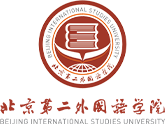
Introduction
The School of Chinese Culture and Communication was established in 2008 via the integration of three primary disciplines. It consists of the Department of Chinese Language and Literature, the Department of Chinese Language International Education, the Department of Journalism and the teaching and research section of philosophy. The school has scientific research platforms including the Chinese Culture Research Institute, the Chinese Literature and Art Review Base, the Center for Philosophical Studies and the Center for Greek Studies. It built the Chinese Language and Literature Postdoctoral Workstation with the Social Sciences Academic Press (CHINA).
1. Guiding ideology of running the school
The school is dedicated to promoting traditional Chinese culture as well as enhancing the communication and integration of Chinese and foreign cultures. It is oriented toward internationalization, specialization and cross-cultural training.
2. Orientation
The school takes the construction of disciplines as a leading role and the construction of majors as a guarantee. It aims to build itself into a school with influence both at home and abroad in talent training and academic research.
3. Goals of talent training
The school imbues international talents with a solid foundation of professional knowledge, high-level cultural literacy, good cross-cultural communication, benevolence and responsibility.
Disciplines and majors
The school is authorized to confer master’s degrees in Chinese language and literature, which has six directions including ancient Chinese literature, modern and contemporary Chinese literature, linguistics and applied linguistics, comparative literature and world literature, theory of literature and art and Chinese philology. It is also authorized to confer master’s degrees in philosophy, which has three directions, namely Marxist philosophy, foreign philosophies and aesthetics. The school offers three undergraduate majors, which are Chinese language and literature, Chinese Language International Education, and journalism.
Faculty
The school has a team of faculty members with responsibility, vitality and an innovative spirit. It has 36 full-time teachers: 15 professors, 11 associate professors and 10 lecturers. About 90 percent of teachers have doctoral degrees. The teachers are rich in teaching experiences and scientific research. In recent years, they have published more than 100 papers on academic periodicals, published more than 20 works, carried out five national scientific research projects and more than 10 provincial ones. Many teachers have won honorary titles.
International communication and cooperation
The school built the Chinese Literature and Art Review Base with the China Federation of Literary and Art Circles, which is one of the first 22 research and training bases in China. It has established the international Chinese language teacher training and talent reserve base with the Beijing Center for International Chinese Education. It runs the first "resident writer base" in Beijing’s universities with Beijing Writers Association. The school offers a batch of English courses to improve students’ ability in cross-cultural study and communication.
The school has signed agreements of cooperation with many overseas universities such as University of Copenhagen, University of California, Berkeley, Swansea University and many others. It sends students to foreign universities for long-term and short-term studies.
Practice
The school provides students with opportunities to work as interns or volunteers at international conferences and competitions. It has established many student practice bases, including CCTV, People's Daily, China Youth Daily and other institutions.
The students have won many honors in the Campus News Awards and the College Television Award.
Employment
With their knowledge, cultural literacy, and good command of English and Chinese, the students have maintained a high employment rate. Many graduates work in the Ministry of Foreign Affairs, CCTV, the Xinhua News Agency, the Phoenix Satellite Television, China Foreign Languages Publishing Administration, the People’s Publishing House and many other domestic and overseas media organizations. Every year more than 30 percent of graduates are admitted to domestic well-known universities for postgraduate study. Some students go abroad for further studies.

Links
